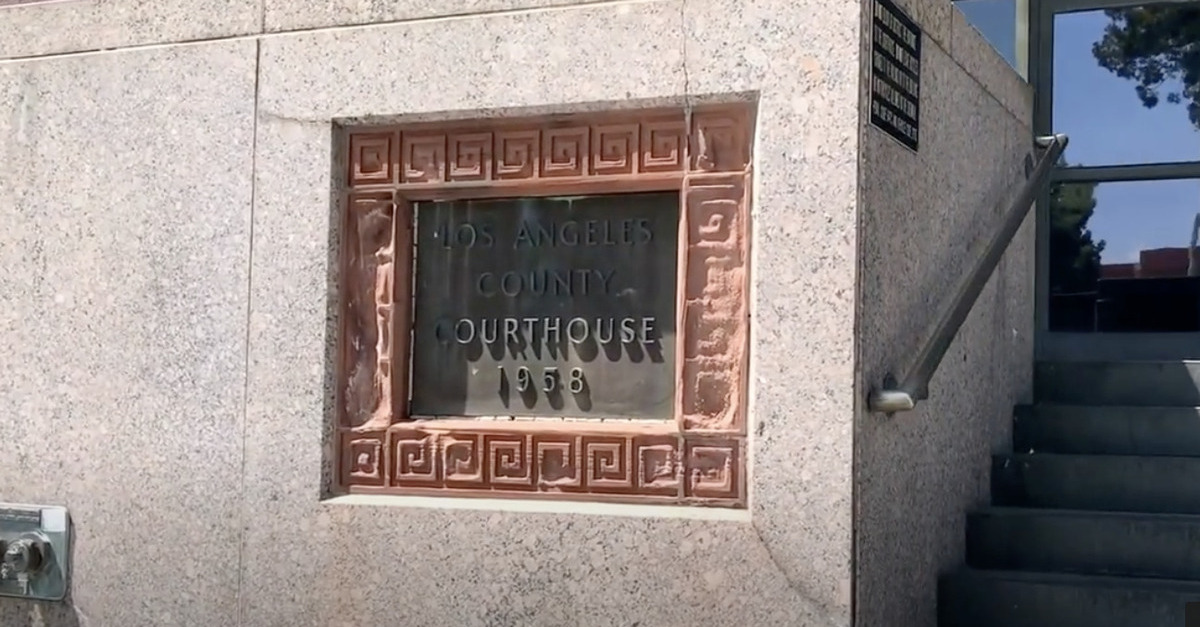
The Stanley Mosk Courthouse Los Angeles Superior Court
A Los Angeles judge ruled Friday that California’s 2018 law requiring women on all corporate boards violates the California state constitution. Superior Court Judge Maureen Duffy-Lewis struck down the statute, reasoning that it violated the equal protection clause of the California constitution.
Conservative advocacy group Judicial Watch brought the underlying legal challenge against California’s law, claiming the state illegally used taxpayer funds to enforce a law that violates the equal protection clause of the California Constitution by mandating a gender-based quota.
The law in question is California’s Senate Bill No. 826, which was signed into law by then-Governor Jerry Brown (D) in 2018. At the time, Brown said that California adopted the statute against the backdrop of the #MeToo era—and that some companies “are not getting the message.”
The lawsuit quoted Brown acknowledging “serious legal concerns have been raised” to the legislation.
“I don’t minimize the potential flaws that indeed may prove fatal to its ultimate implementation,” Brown said at the time, according to the lawsuit.
S.B. 826 mandates that by 2021, all businesses with principal executive offices in California must have “a minimum of one female, as defined, on its board of directors.” The minimum number of women on the board would increase to two if the corporation has five directors, and to three if the corporation has six or more directors. The law also specifies that for its purposes, “‘female’ means an individual who self-identifies her gender as a woman, without regard to the individual’s designated sex at birth.”
The law authorized the Secretary of State to assess fines and penalties for violations, including a fine of up to $100,000 for failure to report board compositions and up to $300,000 for multiple failures to have the requisite amount of female board members.
Plaintiffs challenged the law on the grounds that it violated California’s guarantee of equal protection under the law. Like equal protection challenges brought under the U.S. Constitution, challenges to gender-based classifications under California law are analyzed with heightened scrutiny. To pass muster, such laws must be narrowly tailored to a compelling government interest.
S.B. 826 — like many legislative efforts to promote diversity and inclusion — faced legal exposure in its lack of targeted remedy. Generally, laws deemed to withstand heightened scrutiny are only those precisely drafted to remedy a specific history of discrimination.
Judge Duffy-Lewis remarked in her ruling that, “The Legislature’s actual purpose was gender-balancing, not remedying discrimination,” and that California failed to offer sufficient evidence that its statute was a remedy for specific discrimination against women on corporate boards.
Friday’s ruling against S.B. 826 was not altogether unexpected. In April 2022, Judicial Watch scored a win in a companion case involving the same parties on a similar California law which required corporations to have a board member from an “underrepresented community,” including LGBT, Black, Latino, Asian, Native American or Pacific Islander. In the April ruling, Superior Court Judge Terry Green wrote, “Only in very particular cases should discrimination be remedied by more discrimination.”
Judge Maureen Duffy-Lewis is a former Assistant District Attorney, and she has been an elected judge of the Los Angeles Superior Court since 1987.
“The Court eviscerated California’s unconstitutional gender quota mandate,” Judicial Watch President Tom Fitton said in a statement. “This is the second California court decision finding that quotas for corporate boards are unconstitutional.”
A representative for California’s Secretary of State did not respond to Law&Crime’s request for comment.
Read the ruling, below:
[screengrab via YouTube]
Have a tip we should know? [email protected]